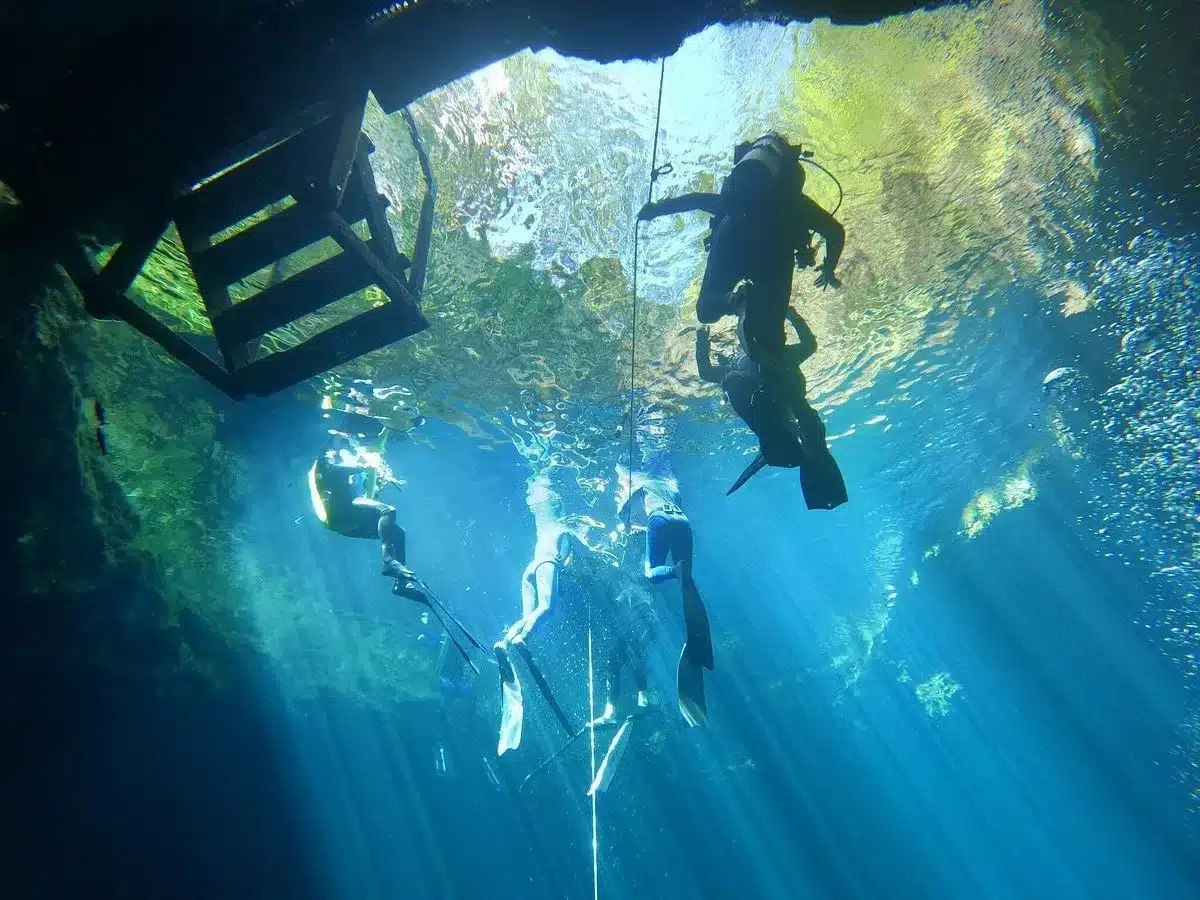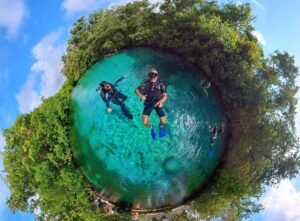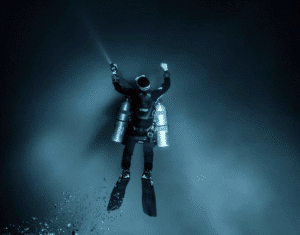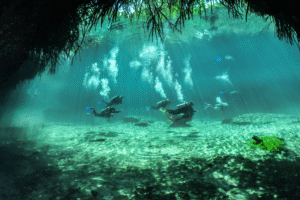Whether you’re a first-time diver or a seasoned pro, selecting the right dive shop is one of the most important decisions you’ll make. The difference between a safe, memorable dive and a bad experience often comes down to the standards, culture, and professionalism of the dive center you choose. In this article, we’ll explore the key criteria for choosing a reliable dive shop, warning signs to look out for, and tips to ensure your diving experience is both safe and enjoyable.
1. Why Choosing the Right Dive Shop Matters
Diving is an adventure sport that depends heavily on safety, environmental awareness, and proper training. A good dive shop:
– Ensures that instructors are trained and experienced, reducing risk.
– Maintains its gear meticulously, avoiding equipment failures underwater.
– Has robust safety protocols, emergency procedures, and medical readiness.
– Respects local ecosystems and follows sustainable diving practices.
Making a wrong choice can result in anything from minor discomfort (ill-fitting gear, confusing briefings) to major hazards (faulty equipment, poor gas quality, diving beyond your skill level).
2. Recognized Certifications & Training Agencies
One of the first markers of a trustworthy dive shop is whether it is affiliated with a reputable certification agency. Some of the globally recognized ones include:
– SSI (Scuba Schools International)
– PADI (Professional Association of Diving Instructors)
– NAUI
– IANTD
– CMAS
– Others (e.g. WOSD, BSAC)
These agencies set training standards for instructors, safety, equipment, and emergency procedures. For example:
– According to ISO 24802-2, an instructor candidate must have certain prerequisites (including logged dives, med fitness, prior diver levels) to be qualified.
– Agencies like IANTD have standards and procedures that ensure consistency and safety in how instructors and centers operate.
What to check:
– Is the dive shop an officially licensed center with these agencies?
– Are courses recognized internationally (so your certification will be valid elsewhere)?
– Is the instructor’s certification current? (Many agencies require renewal or proof of recent activity.)
3. Instructor & Staff Qualifications
Even with good credentials, the people running the training make all the difference. Look for:
– Instructors certified with recognized agencies (one of those listed above).
– Verified experience: how many students they’ve taught, how many dives they’ve done.
– Current in first aid, CPR, oxygen provider training. An instructor—even if certified—who’s not up to date with safety/emergency training is a risk.
– Medical fitness of the instructors. Many agencies require a medical examination not older than 1 year.
Agencies often specify levels: for example, EN / ISO standards distinguish between Level 1 and Level 2 instructors, with different abilities, responsibilities, and scrutiny of experience.
4. Equipment, Facilities & Maintenance
Even the most skilled instructor can’t compensate for bad equipment or hazardous conditions. Here’s what to look for:
– Rental gear should be clean, well-maintained, fitting properly. Masks, fins, BCDs, tanks—all must be in good condition. If possible, inspect the equipment.
– How do they store tanks / gear? Are wet items allowed to dry properly? Are gear rooms ventilated and clean? Damage or mildew can degrade functions. Overlooked maintenance usually indicates deeper problems.
– Compressor and filling station: the compressor room should be clean, free from contaminants (dust, car exhaust, smoke). Good air quality is vital.
5. Safety Procedures, Briefings & Risk Management
Proper safety procedures aren’t optional—they’re essential.
– Dive briefings must be thorough: dive plan, conditions, emergency procedures, what to expect underwater. Rushed or vague briefings are warning signs.
– Dive centers should check your certification (if you’re already certified), ask medical history, get liability waivers. If these steps are skipped, that’s a red flag.
– Emergency equipment should be in place and visible: first aid kits, oxygen, possibly AEDs, and well-trained staff. Has the shop got emergency response protocols? Is staff familiar with them?
– Ensure that the dive shop respects your comfort level. If you’ve not dived in a while, do they recommend a refresher dive? Do they check your gear, weights, buoyancy before going?
6. Class Sizes, Personal Attention & Dive Culture
A shop that treats students as just another number is less likely to give individually adapted teaching or to notice small issues.
– Smaller class sizes (student-to-instructor ratio) mean you’ll get more hands-on help. Your instructor will be more likely to see when you’re struggling, adjust instruction style, give one-on-one feedback.
– Dive culture: are staff friendly, patient? Does the shop seem to value comfort, safety, learning rather than just pushing for profit or making everyone skip to advanced levels too rapidly?
– Multilingual ability may matter in some locations. If you don’t speak the local language, is there someone who explains things in a language you understand well?

7. Reading Reviews & Reputation
It’s always good to see what others have experienced. Some tips for interpreting reviews:
– Look for recurring themes: not just one person complaining, but many people mentioning, say, poor equipment, rushed briefings, or neglected safety. That suggests a pattern.
– Look beyond “star ratings” — read what people say. Safety, comfort, how instructors treat students, interactions before/during/after dives matter.
– Use multiple platforms: Google Reviews, Facebook, diving forums (Scubaboard, etc.), travel websites. Sometimes a dive shop might have great pictures and marketing but less solid feedback on safety.
– Ask local divers, dive communities: local Facebook groups, travel blogs. Sometimes certain shops may have good marketing but locals know better which ones truly maintain standards.
8. Warning Signs: What Should Raise Red Flags
Here are warning signs you should not ignore. If you observe any of these, consider looking elsewhere:
- Poor Equipment Maintenance
Rusted tanks, frayed hoses, old padding, gear left wet, smelling mold or mildew — all bad signs. - Lack of Proper Certifications / Unclear Affiliations
If the shop or instructors can’t show certifications or seem vague about them. If they aren’t affiliated with known agencies, or their affiliation isn’t current. - Unhygienic or Disorganized Facilities
Reception area in chaos, equipment piled up, wet gear left everywhere, rooms not cleaned, toilets poorly maintained. These may reflect neglect in more critical areas. - Compressor / Tank Filling Room in Poor Condition
Dirty environment, possibility of pollution, smoke near compressor intakes, lack of ventilation. Air compressors should ideally draw clean air and be in good shape. - Skipping Paperwork / Health Questionnaires
Not asking for your medical history, ignoring liability waivers, or not checking your certification. These are basic safeguards. - Rushed or Insufficient Briefings
If a dive leader just says “follow me” with little explanation about what you’ll see, what conditions to expect, what to do in case of emergency. - Large, Overcrowded Groups
When there are too many people per instructor, safety and supervision drop. Also more pressure on gear, less flexibility. - Negative Reviews & Reputation
Particularly around safety, staff behavior, disregard for experience level. If lots of people mention they were pushed beyond comfort, or that instructors ignored safety rules. - Discomfort or Lack of Transparency
If when you ask questions they are evasive; if staff seem annoyed rather than supportive when you express concerns; if policies are unclear. Trust your instincts.
9. Questions to Ask a Dive Shop Before Booking
To help you evaluate a shop in person or over email / phone, here are some questions you might ask:
– Which training agency are you affiliated with? Can you show me active certification?
– How many instructors do you have, and what are their qualifications and recent logged dives?
– What is your student-to-instructor ratio for Open Water / Advanced courses / guided dives?
– What condition is your rental gear in? When was it serviced last?
– Where is your compressor / tank filling station? How is air quality monitored?
– What safety / emergency equipment do you have? Oxygen, first aid, emergency plans?
– How do you handle refilling after a break—do you require refresher dives?
– Do you ask for medical questionnaires or waivers? What is your policy if someone has a medical issue?
– Can I see some reviews from recent students / divers? Could you connect me with former students?
10. Making the Final Decision
Putting all the above together can feel overwhelming. Here’s how to narrow it down:
- Do preliminary research: list several candidate dive shops in your location or travel destination.
- Compare their credentials: agency, instructors, equipment, safety audits, etc.
- Visit if possible: nothing beats walking in, seeing the gear, talking with staff. Even if doing remote booking, ask for photos of gear, facilities.
- Trust your gut: if something doesn’t feel right—if staff are dismissive, or you see obvious maintenance issues—keep looking.
- Balance cost with value: sometimes cheaper dive shops skimp on safety or gear. Paying more doesn’t guarantee higher quality, but a very low price for a safety-intensive activity should make you ask questions.
Conclusión
A good dive shop does far more than just rent tanks or teach diving skills. It fosters a culture of safety, professionalism, environmental awareness, and customer care. By paying attention to certifications, instructor quality, equipment, and safety procedures—and by being aware of warning signs—you greatly increase your chances of having safe, enjoyable dives.
Safe diving means more than avoiding danger: it means being able to relax, explore, learn, and enjoy the underwater world, secure in the knowledge that you are in good hands.
At Yucatán Dive Crew, we’re committed to these very principles. Our mission is to provide safe, professional, and unforgettable diving experiences in the cenotes and beyond.
Whether you’re just starting out or looking to advance your skills, our certified instructors, top-quality equipment, and passion for the underwater world make us a reliable partner for your next adventure.




